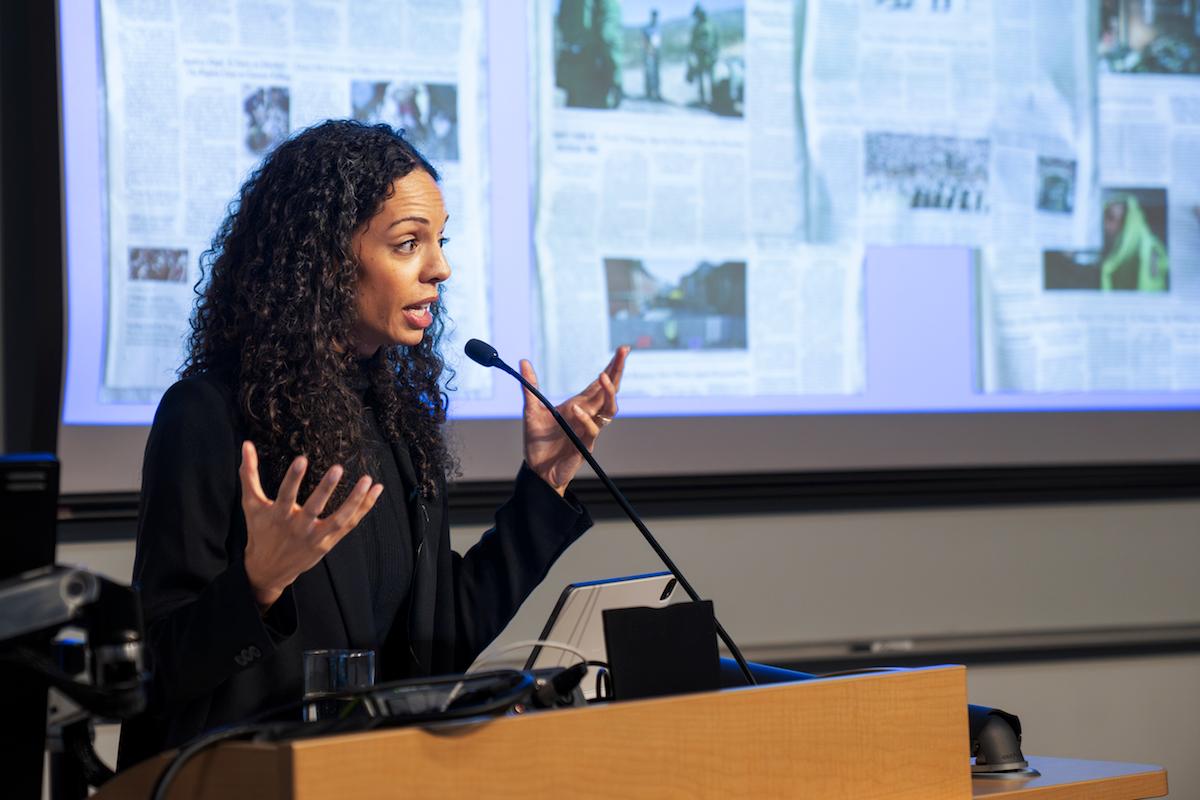During the University of Rhode Island’s Taricani lecture this past Wednesday, investigative journalist Caitlin Dickerson spoke on her work in writing and revealing previously covered up stories.
The Taricani Lecture is an annual event created in honor of Jim Taricani, an alum of URI. Taricani is remembered for his work as a journalist – particularly for his refusal to disclose the identity of a source, which consequently put him in home confinement.
Dickerson grew up in Merced, a farming town in California, and attended college at California State University, Long Beach. From her experiences growing up in a lower class community, Dickerson saw from a young age the impact that accessible information can have on citizens’ ability to be active members of American democracy.
“Working people don’t necessarily have time to inform themselves as much as is necessary in order to participate fully,” Dickerson said.
Dickerson wanted to become a journalist so that she could be an informer for citizens, allowing them to become more involved in society.
Throughout the lecture, Dickerson highlighted her two most prominent investigations over her career thus far. The first of these she won a Peabody Award for, an article on veterans struggling with the after effects of being test subjects for mustard gas.
Dickerson described the intricacies to the process of this investigation and how difficult it was to find resources due to the nature of the topic.
After her work on this investigation for NPR was published and received recognition, Dickerson was recruited to work for the New York Times. Now she works for The Atlantic, where she wrote on the secret separation of immigrant families at the United States border.
“There were a million clues in these stories that spoke to specific experiences of separated families, officials who were involved, locations, dates, etc.,” Dickerson said. “Sometimes the work of investigative reporting is just simply the tedious task of compiling all of that and putting it together, and so that’s what I did.”
Dickerson was given a tip about the separation of children from their parents at the border when families were trying to immigrate to the U.S.. She had much difficulty within this investigation as the government was denying that this was happening at the time. Dickerson ended up being contacted by government officials who admitted to this process happening and who had been trying to reconnect these families, putting their own jobs at risk in the process of disclosing this information.
Due to the secrecy around the topic, Dickerson had to use many sources in order to fully verify the facts before publishing her story. In the end, her article was 30,000 words long and for this, she has since won the Pulitzer Prize in Explanatory Journalism in 2023.
Dickerson’s initial goal of educating the public through her writing still remains today, as she explained the importance of reporting the truth.
“Whatever the story you’re working on it starts with a simple goal to inform,” Dickerson said. “To tell readers not what people with a lot of power want them to think is true, but what’s actually true.”

